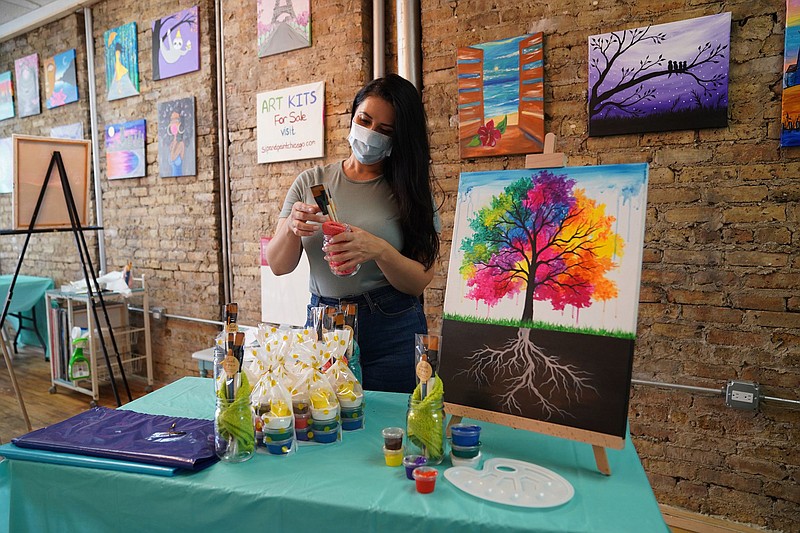CHICAGO - Within hours of closing for the pandemic, the staff at Chicago's Hyde Park Art Center switched their focus to creating online content.
When the pandemic closed community spaces in March, art classes had to scramble to ensure students had quality instruction, now without hands-on teaching.
Mike Nourse, the director of education at Hyde Park Art Center, said its digital transition was a success.
"When we started the virtual classes it was a way to keep our current student base engaged. I think we were surprised at how many more students we've had join who have never used clay," Nourse said.
Using Google Meet, the Hyde Park Art Center hosts courses on drawing, ceramic and more. He said instructors faced a learning curve. The staff hosted workshops to bridge the technical gap.
"It was a curveball for people who relied their whole careers on in-person teaching," he said. "We told our teachers early on, none of our staff has done this before. We've been very open with our communication. It's a shared process."
At Lillstreet Art Center, Jessie LaMacchia, director of marketing and outreach, said its teachers have an overhead camera so students can learn techniques. The center teaches drawing, ceramics and other art forms. LaMacchia said the classes are still better than a recorded session.
"Just like in a regular class, if students are struggling or have any questions, teachers are able to provide one-on-one help," LaMacchia said. "That's the benefit of live instruction versus watching a video tutorial online."
Chris Busse, co-owner of Penguin Foot Pottery in Wicker Park, said instructing people online has been an adjustment. Because clay is so malleable, it's easier for a teacher to help fix any issues in person. Penguin Foot instructors ask people to hold their clay close to the camera to show how they're doing.
Penguin Pottery, Lillstreet Art Center and Sip and Paint Chicago in Jefferson Park have created kits for their classes, small packages containing essential materials and contactless pickup. And whatever studios can't provide, teachers attempt to work around.
"We designed all of our lessons to work around using common household objects, like butter knives and forks, things folks will have lying around," Busse said. "Luckily with clay, hands are the biggest tool you need."
Although Sip and Paint is hosting small, in-person events, owner Lily Miteva said there's nothing like a full house. "The instructor and I worked off the people's energy," she said. "We miss walking around in the studio, giving tips or offering advice."
LaMacchia said although she wishes it was safe for customers to come in, online classes have taught the studio a lot. I think the biggest take away from online classes is just to be flexible in thinking about how and what you teach," LaMacchia said. "How can we utilize everyday tools that students have in their home so they don't have to sink a fortune into supplies to participate in our classes? What new techniques can we add that are more appropriate for in-home work?"
At Hyde Park, Nourse said some courses like ceramic and printmaking classes have in-person sessions in small groups now that the center has reopened. Other classes will stay virtual for the time being, and possibly even after the pandemic. "This isn't a quick fix," Nourse said. "This will stay with us for the long haul."

